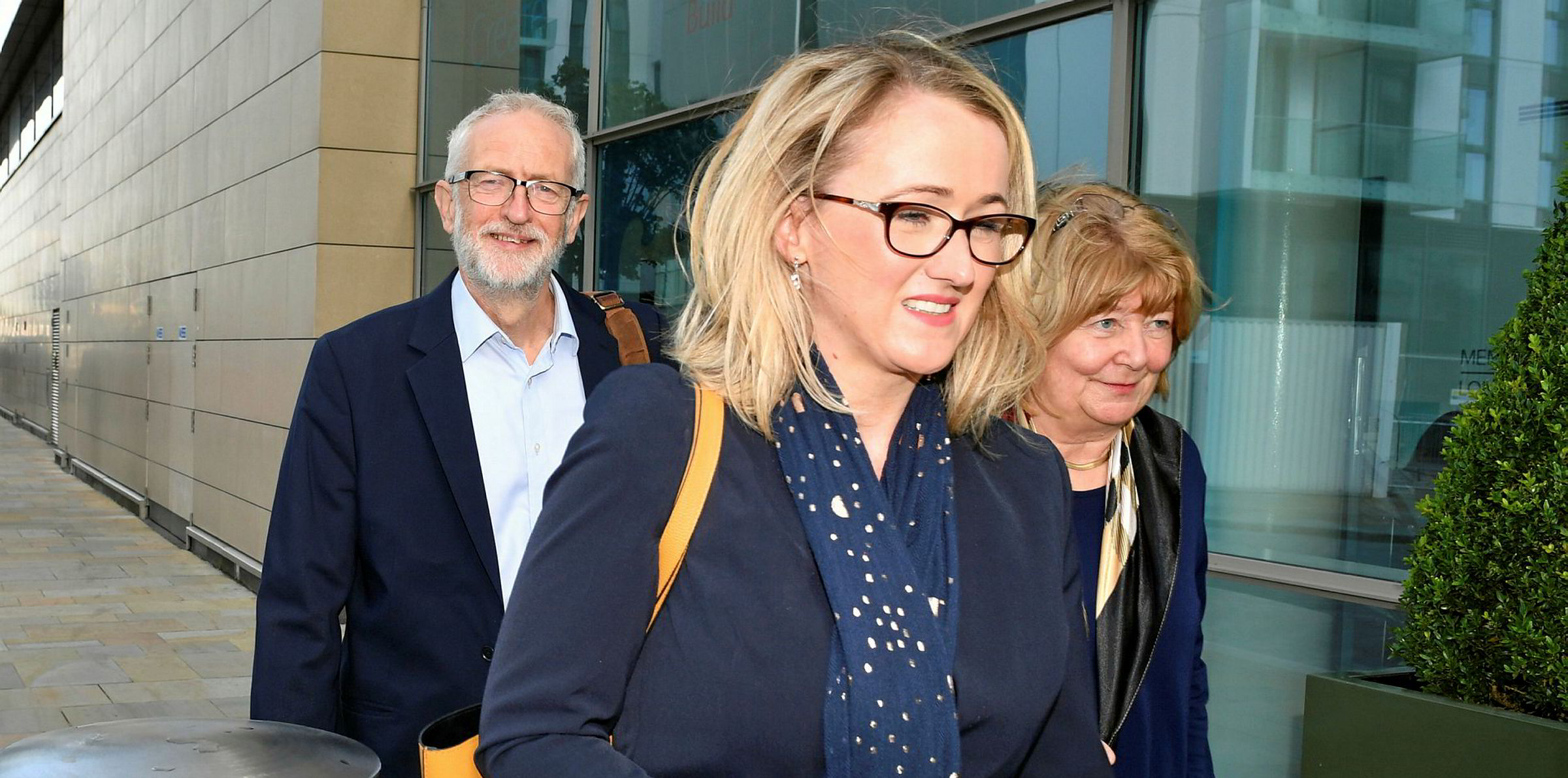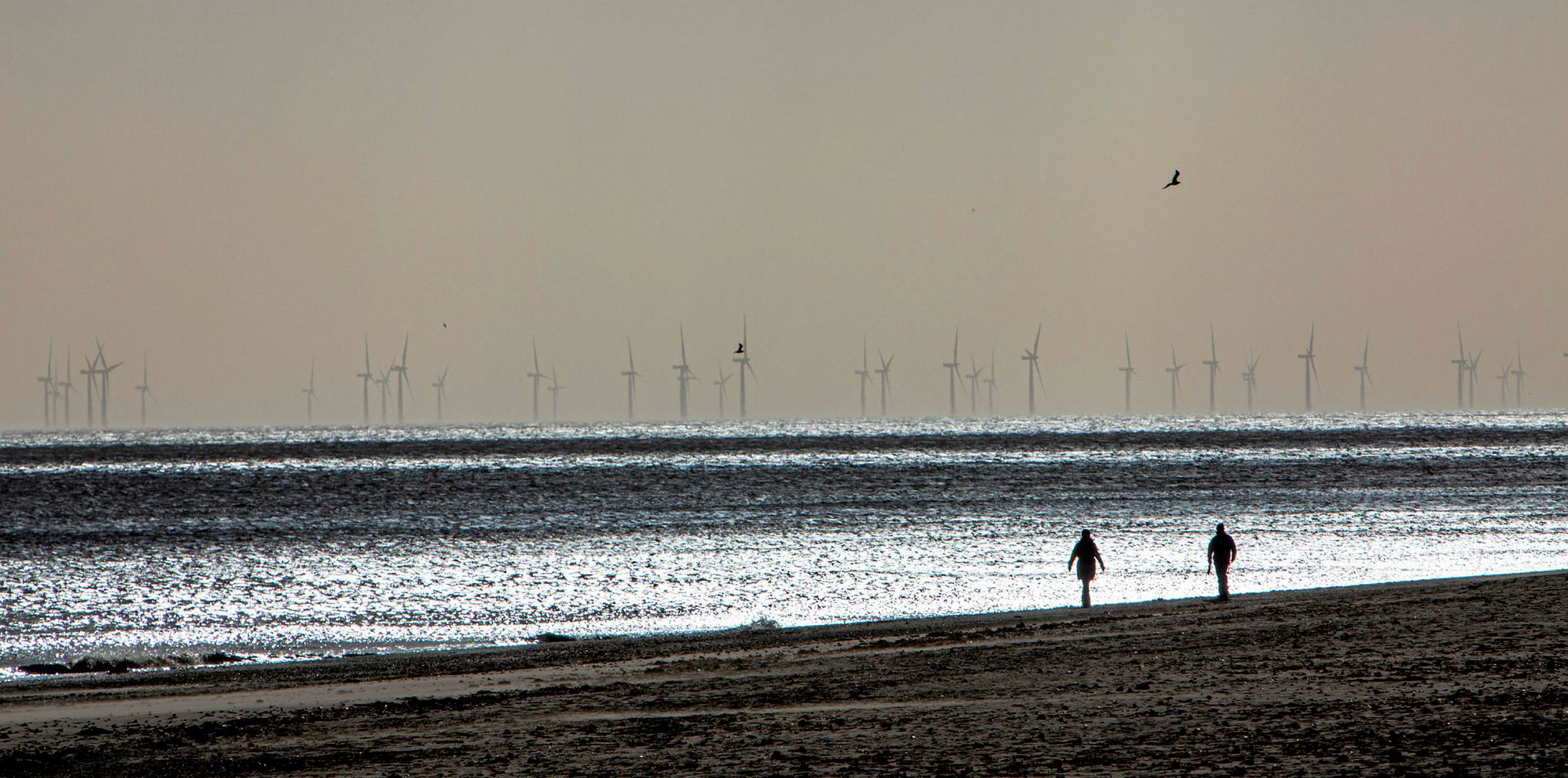Britain’s opposition Labour Party unveiled plans to build 37 new offshore wind farms if it wins power, with majority public-ownership of the projects “to stop private and foreign public firms, taking jobs and revenue out of the UK”.
The offshore wind deployment led by a newly-created ‘People’s Power Fund’ that underpins a 51% government stake in projects would aim to get 52GW of turbines in the water by 2030, said Labour, a target well in excess of the 30GW or so currently envisaged by the UK industry and government.
Launching the initiative, shadow energy minister Rebecca Long Bailey turned the spotlight on the foreign and privately-owned structure of the current UK sector, which only last week delivered another steep fall in offshore wind power prices in the latest government auction round.
Long Bailey said: “While [the] offshore wind industry is still young, the UK has the opportunity to avoid replicating Britain’s experience with North Sea Oil and instead to learn from countries such as Norway and Sweden by owning what is already ours.
“By taking a stake in offshore wind, we can collectively benefit from the profits.”
According to figures cited by Labour, of around 10GW of offshore wind under construction or operating off the UK “51% is owned by foreign public entities like Orsted from Denmark, Vattenfall from Sweden and Masdar from UAE; 42% is owned by foreign private companies like Iberdrola-ScottishPower from Spain, Innogy from Germany and Macquarie from Australia: and 7% is owned by UK private companies like SSE and Centrica.”
Long Bailey’s comments came a day after the CEO of Orsted – which has led the way in UK offshore wind so far – told the UN Climate Summit that wind at sea could be a beacon for private sector investment in renewable energy.
Labour, led by left-wing favourite Jeremy Corbyn, is the largest opposition to the governing Conservative Party in the UK parliament, ahead of a general election that is expected within months as the nation attempts to resolve its hugely divisive Brexit from the EU.
However, Labour is faring badly in opinion polls and many believe its best chance of power will be in coalition with the staunchly pro-EU Liberal Democrats and the Scottish National Party – both of which have progressive views on climate policy.


